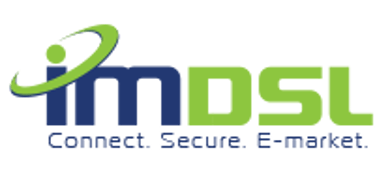The 7 Essential Components of Digital Marketing


Understanding Digital Marketing
In the current digital landscape, developing a comprehensive digital marketing strategy is more important than ever. Various components come together to create a successful framework. Each element plays a crucial role in enhancing online presence and achieving broader business objectives. In this post, we will explore the seven main components of digital marketing that pave the way for effective engagement and conversion.
Search Engine Optimization (SEO)
Search Engine Optimization (SEO) is fundamental to digital marketing. It involves optimizing your website and content to improve visibility in search engine results pages (SERPs). Think of SEO as the pathway to your online store on a busy digital street. By implementing effective SEO practices, you increase the chances of potential customers discovering your offerings when they search for relevant keywords. Key tactics include keyword research, on-page optimization, and link-building strategies, which all work synergistically to elevate your site’s ranking and traffic.
Social Media Marketing
Social media marketing is another integral component of a digital marketing strategy. Engaging with audiences on platforms such as Facebook, Twitter, and Instagram allows businesses to build relationships with customers and cultivate a sense of community. Through targeted ads, consistent posting, and interactive content, brands can enhance their visibility and foster loyalty. An effective social media strategy not only promotes products but also nurtures dialogue and feedback from customers, enriching the overall brand experience.
Email Marketing
Email marketing remains a powerful tool for connecting with customers. It serves as a direct line of communication, allowing businesses to share exclusive offers, product updates, and content tailored to user preferences. Personalized email campaigns can significantly increase engagement rates and drive conversions. By segmenting audiences and crafting compelling messages, businesses can boost customer retention and build long-lasting relationships.
Content Marketing
Content marketing focuses on creating valuable, relevant content to attract and engage an audience. High-quality blogs, videos, and infographics not only enhance your brand's visibility but also establish your authority in a particular field. By providing informative and actionable content, businesses can foster trust and encourage conversions. This long-term strategy showcases your expertise while addressing customer pains, aligning perfectly with their needs and interests.
PPC Advertising
Pay-Per-Click (PPC) advertising is a paid model of digital marketing that allows businesses to position their services prominently on search engines and social media platforms. By bidding on relevant keywords, companies can achieve immediate visibility among target demographics. PPC offers control over advertising spend while measuring campaign effectiveness through analytics. This approach works well alongside organic strategies, such as SEO and content marketing, maximizing overall exposure and promotional efforts.
Analytics and Measurement
Data analytics is vital for measuring the success of digital marketing initiatives. By analyzing user behavior, traffic sources, and conversion rates, businesses can identify successful strategies and areas for improvement. Tools such as Google Analytics provide insights that inform business decisions and optimize marketing tactics for better results.
Influencer Marketing
Finally, influencer marketing has emerged as a significant component of digital marketing. By collaborating with influential figures, brands can tap into established audiences and gain credibility. This method creates authentic promotional opportunities that resonate with consumers, often resulting in higher engagement and sales.
In summary, each of these seven components of digital marketing plays a vital role in crafting a well-rounded strategy. By integrating and optimizing these elements, businesses can effectively reach their target audience and achieve lasting success in the digital space.
CONTACT US:
203, 26th July St., Sphinx Square, El Mohandeseen , Cairo, Egypt
Mobile : +20 1028905553
Email : info@im-dsl.com
